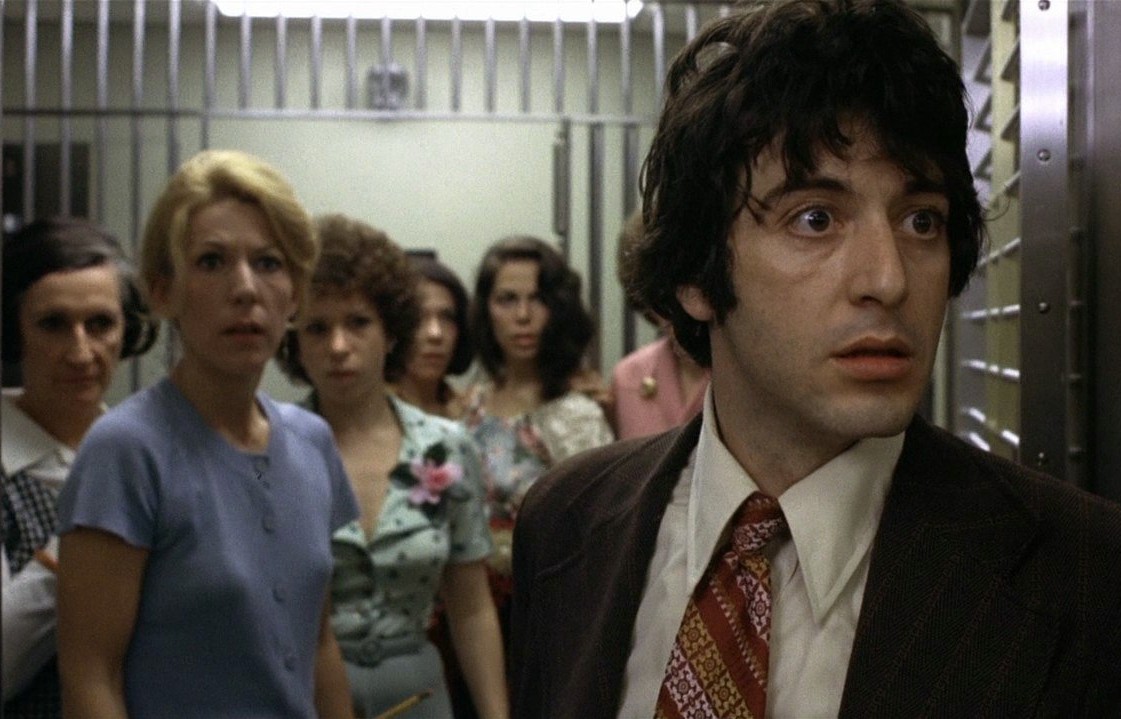
A hostage situation is one of the rare plot devices that can pop up in any genre, be it action, suspense, or drama. It provides a hothouse of emotional conflict between captors and victims, often times yanking out both the best and the worst of every person involved. For filmmakers, it’s the perfect excuse to throw in chest-thumping monologues, close quarter brawls, and whatever else sparks the spirit of insanity when mortality is oh so near. Whether a speeding bus or a locked down bank, the tension of a hostage standoff in unlike any other in cinema.
Given most hostage movies dabble in the same ingredients, it’s easy for a story to slip into predictability. Typically, there’s a hero (hostage), a villain (captor), and a collection of damsels (and dudes) in distress, longing for police salvation. There’s great films that play within this blueprint, and those that twist the formula into something new altogether.
This list focuses on both, cherry picking the gems of all genres that emphasis the plight of the hostage and/or captor. Hostage situations that only make up a portion of the story (The King of Comedy, Argo) will not be making the cut, nor will kidnapping yarns like Misery and Ransom. Feel free to throw your selections in the comment section below, but until then, here are The 10 Best Hostage Movies of All Time.
10. Inside Man (2006)
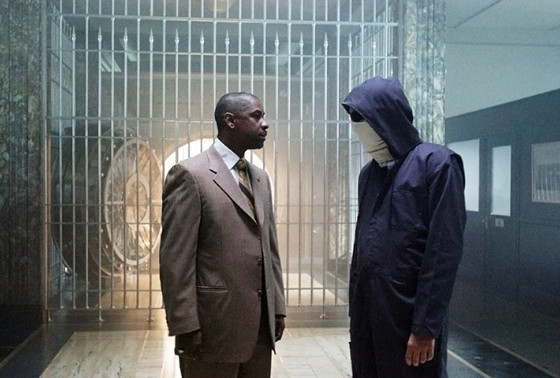
When a magician pulls a rabbit out of his hat, the wonderment isn’t so much in the result as it is the steps it took to get there. The planning, the slight-of-hand, the well-timed swap in plain sight. As such, a hostage negotiation rarely finds success without these very same ingredients, ending far more often in jail time than a graceful bow out behind the curtain of deceit. Dead-eyed Dalton Russell (Clive Owen) is one such success, holding an upper hand throughout every frame of Inside Man’s non-linear narrative, and implanting a bait-and-switch that makes other pros look like fumbling amateurs.
As such, this 2006 outing from director Spike Lee is a grimly lit exercise in onscreen trickery. Far removed from the colorful exuberance of joints like Do The Right Thing or even Malcolm X, Lee’s handheld excursion through the monotonous streets of upper Manhattan reek of a style that’s wholly original to its story. Non-flashy camera moves, interrogation scenes slathered in milky white grain, and a desaturated green reminiscent of The Matrix enhance an attempted theft of millions while detectives Frazier (Denzel Washington) and Mitchell (Chiwetel Ejiofor) attempt to piece together a motive.
Both performers, paired with skeptical police captain Willem Dafoe, tone down grand gestures in favor of a minimal approach that swaps out Lee’s satire with a dense sense of seriousness. The script, helmed by rookie screenwriter Russell Gerwirtz, sets focus on the plight of the middle-class and the wealthy (Jodie Foster’s underhanded problem solver), with subtext highlighting crime, punishment, and the role of authority in modern justice.
But all thematic pinpoints prove to be the viewer’s ultimate undoing. In reality, the sheen of Inside Man is merely slight-of-hand reasoning, an extension of Dalton’s elaborate ruse to abscond with the cash. In this, a faux attempt at hostage cliche winds up the strength of an otherwise traditional movie. Not a bad trick.
9. Captain Phillips (2013)
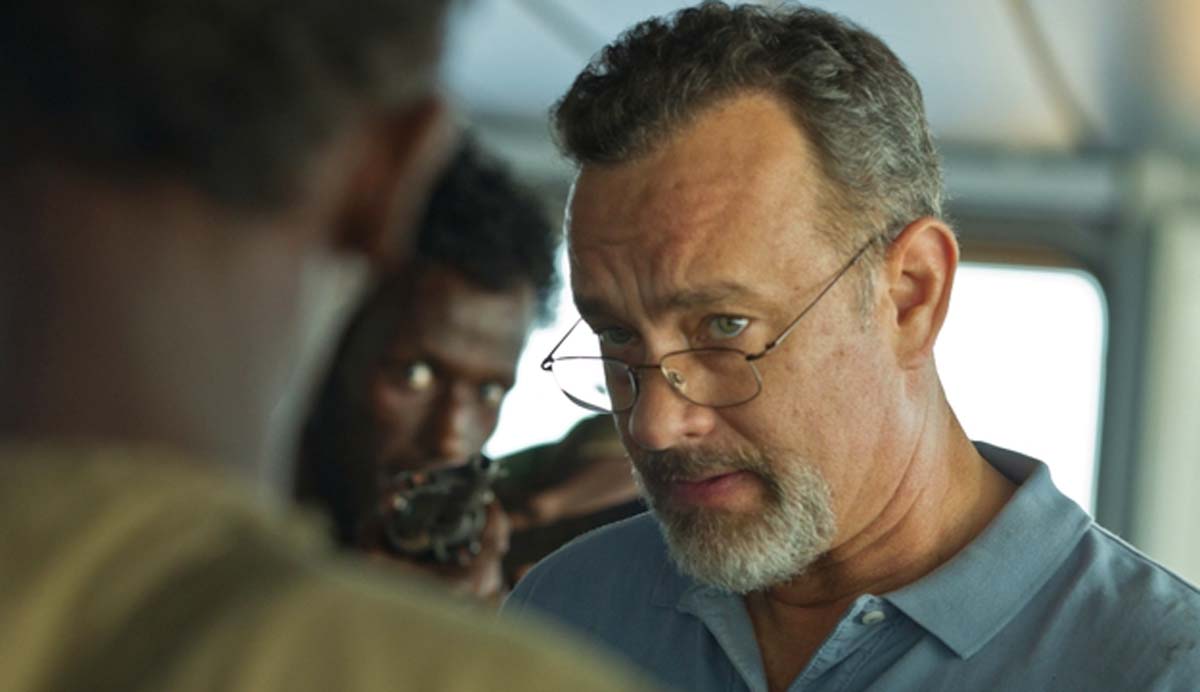
Captain Phillips’ daunting true story is a pean to the average joe, a man who, more than anything else, found himself in the wrong place at the wrong time. That place just happened to be off the coast of the Horn of Africa, and the timing coincided with four Somali pirates who boarded an unarmed cargo ship in 2009. Taking the crew and Captain Richard Phillips (Tom Hanks) hostage, the pirates, led by Abduwali Muse (Barkhad Abdi), planned to ransom the ship for millions in shipping insurance money.
Nothing turns out as it should in this dizzying deep sea standoff. Director Paul Greengrass (The Bourne Ultimatum, United 93) consistently infuses an ambiguity to his cast of characters, allowing the viewer to understand the perspectives of both Phillips and Muse. The latter role is a particularly pleasant surprise, as Abdi’s early scenes add a thick layer of resentment that goes a long way in explaining his desperate predicament. As far as empathy goes, Greengrass and screenwriter Billy Ray capture the grey authenticity behind a real life situation; all the flaws, virtues, and uncertainty.
As the titular character, Tom Hanks delivers his finest performances in years. Starting out as a bagged lunch everyman, Phillips is the obligatory eyes and ears of the viewer. But as things begin to crumble, the quiet Captain quickly becomes a man of action, fighting his own insecurities against certain death and cleverly circumventing the armed pirates. Yet similar to his captors, the beguiling Phillips also falls victim to honest mistakes, building to a nerve-racked lifeboat finale. Only in this, the final moments, does the reserved Captain breakdown and show the toll that such tension takes on a human being.
As a result, the dramatic punch of Captain Phillips is undeniable. It’s a film that follows the hostage handbook without forgetting to put the viewer’s emotional connections first.
8. The Negotiator (1998)
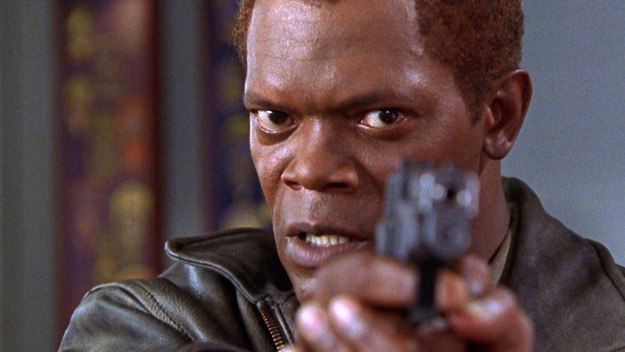
With The Negotiator, director F. Gary Gray finally answered the age old question: what if a hostage negotiator decided to take hostages? The stakes become sky high, and a typically tense situation is maximized with the realization that a professional is now the one waving the gun. It’s a brilliant gimmick of a concept, and Gray’s sleek mood delivers the goods in this 1998 mystery starring Samuel L. Jackson and Kevin Spacey.
Danny Roman (Jackson) is the city’s top negotiator – until he’s framed for murder and embezzlement. Now, with his back against the wall and a jail sentence awaiting, the desperate cop takes hostages with the intention of clearing his name and catching the men responsible. Surrounded by the same department that set him up, Roman engages in a lengthy battle of wits with negotiator Chris Sabian (Spacey).
Much time is spent within this back-and-forth; fortunately, The Negotiator is at its best when carried on the shoulders of these lead performers. Jackson, a man on the brink of criminal intent, and Spacey, a calculated emotional expert, are perfectly cast in their respective roles, as are supporting players like David Morse, Paul Giamatti, and J.T. Walsh.
And while acting makes a case as the strong suit of the film, James DeMonaco and Kevin Fox’s delightful script also comes through for the viewers. The promise of the premise is delivered tenfold when Roman hilariously upstages amateur Farley (Stephen Lee), laying out the do’s and don’ts of phone negotiation – which apparently includes not saying the word “no.” It’s a wonderful sequence, and one that won’t be replicated in other hostage movies out of sheer uniqueness.
Wrapped in Gray’s sharp eye for excitement, The Negotiator offers up a wholly ironic take on the hostage premise. Besides, where else is there detailed discussions of the film Shane while multiple lives hang in the balance? Hopefully that’s not a common occurrence.
7. Panic Room (2002)
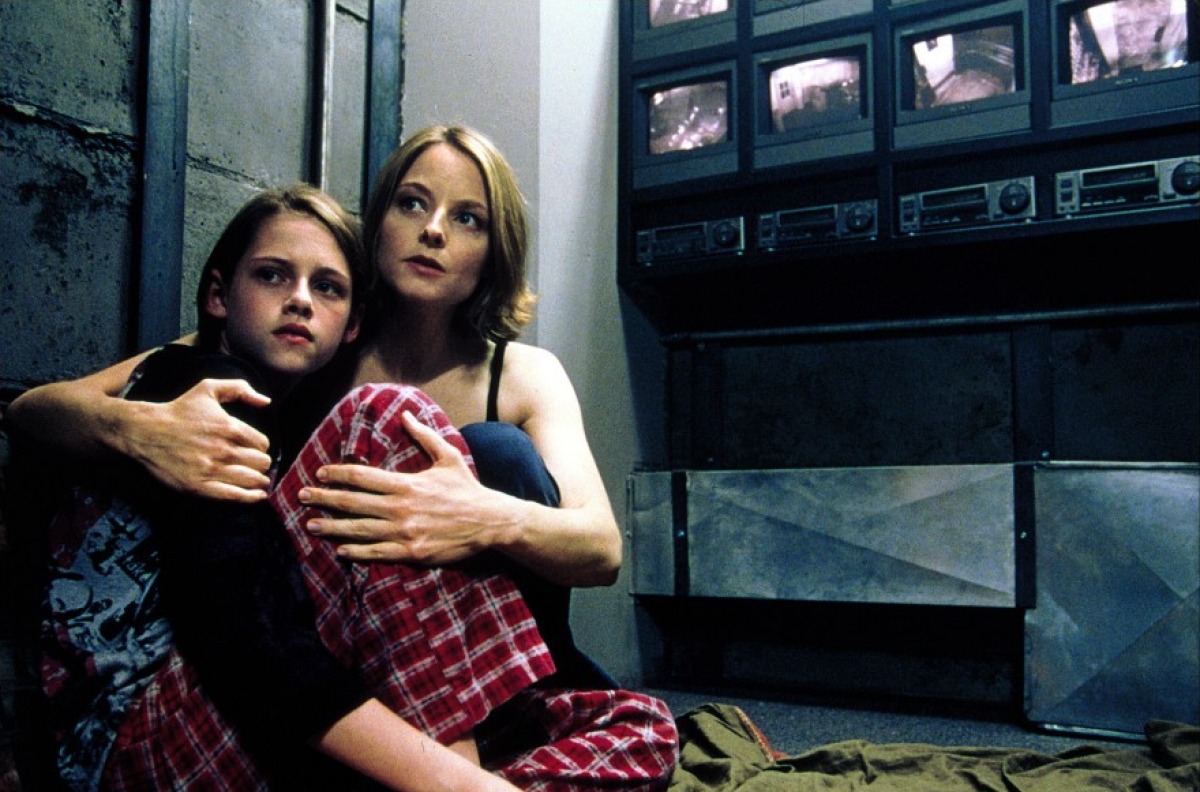
Recently divorced Meg Altman (Jodie Foster) and her daughter Sarah (Kristen Stewart) move into a four-story house in New York City. Armed with the eccentric additions of its reclusive previous owner, the building comes complete with an upstairs panic room and surveillance cameras on each floor – a system that comes in handy when a trio of burglars (Forest Whitaker, Jared Leto, Dwight Yoakam) break in and begin ravaging the house.
As a suspense film, Panic Room pulls heavily from the set-piece specialties of Alfred Hitchcock. David Fincher, a director more known for his neo-noir output (Se7en, Zodiac, Gone Girl), goes full-on showman with cramped environments and a God’s Eye view of the proceedings. Through careful manipulation and the director’s patented color palate, the hand-wringing uneasiness of Foster’s mad dash for the phone or Stewart’s horrifying diabetic attack only add to a mood that refuses to let up. In this regard, the film is a triumph of atmosphere so sickening it gives Fight Club’s fluorescent flicker a run for its money.
Performance wise, Panic Room joins the rest of the Fincher resume with excellent acting across the board. Foster has rarely been better, playing the gambit of emotions in the span of a closet sized room, while Stewart captivates as a plucky child actress who actually doesn’t annoy. The thoroughly unpleasant threesome is also terrific, bickering like some homicidal re-imagining of The Three Stooges; Leto, the cornrowed adolescent, Yoakam the sadistic psychopath, and Whitaker the weak willed well-intentioned.
As a hostage film, screenwriter David Koepp takes themes foreign to thrillers like feminism, mortality, and home surveillance and inverts them through suspenseful lens of a master filmmaker. That Panic Room remains wholeheartedly in the genre is an achievement all on its own, let alone the fact it’s the only film on the list to come prepared with a hostage back-up plan.
6. The Taking of Pelham 123 (1974)
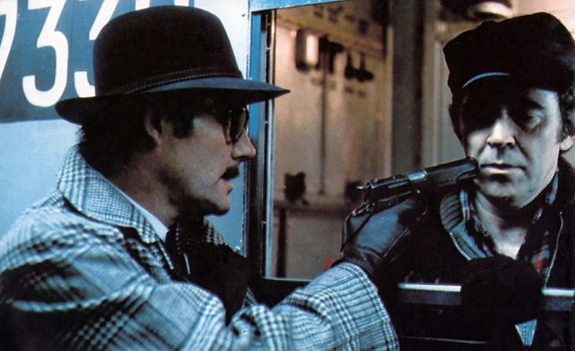
The Taking of Pelham 123 has had several iterations, once as a 1988 TV movie, and again as a 2009 remake starring Denzel Washington and John Travolta; but none come close to the nicotine stained flavor of this 1974 original. Directed by forgotten studio vet Joseph Sargent (MacArthur, Nightmares), the film consists of a color coordinated crew who take down a subway car with 17 passengers, under the demands they be paid $1 million immediately. If not, they’ll kill everyone on board – the typical threat.
Adapted from John Godey’s novel, Pelham 123 is one of the more traditional takes on hostage negotiation, a case of execution trumping content. The bad guys aren’t offered much in the way of depth, but a rogue’s gallery of all stars including Robert Shaw, Martin Balsam, Earl Hindman, and a particularly mean Héctor Elizondo add zest to their respective stereotypes. On the other side of the horn, the film takes a bit of a gamble casting comedians Walter Matthau and Jerry Stiller as stiff collared transit cops. While allowed some of the banter both men were famously known for, the humorous aspects of the story lie more in Matthau’s circus colored suit than his grim demeanor.
Coming off of 1973 thrillers Charley Varrick and The Laughing Policeman, the actor’s turn as exasperated negotiator Zachary Garber lends Pelham some of it’s more emotionally sincere moments. That sincerity proves crucial, especially given much of the picture is spent spinning the wheels of political runaround. More than any other hostage situation on the list, the lives of the subway passengers are weighed against a scale of votes and public perception – the underhanded but true nature of the adult world.
Topped off with David Shire’s killer 70’s soundtrack, Pelham pushed the tension of the era, a cable car named gunfire that laid out many of modern captivity’s movie rules. Minus the bright yellow necktie, of course.